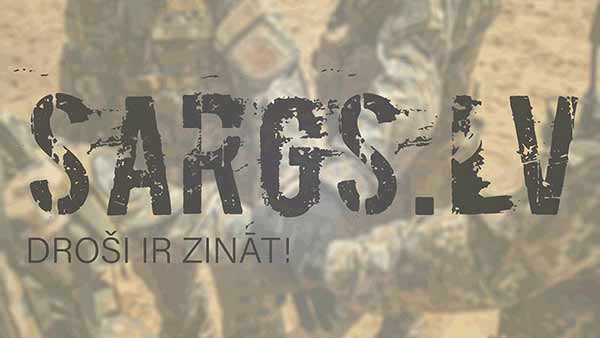
Parlamentārā sekretāra Veiko Spolīša uzruna starptautiskajā seminārā par Globālās navigācijas satelītu sistēmu pielietojumiem
Today, I have a great pleasure to welcome you all on behalf of the Latvian Ministry of Defence at the UnitedNations/ LatviaWorkshop on the Applications of Global Navigation Satellite Systems. You may find it a bit unusual, but here, in Latvia, Ministry of Defence besides its military defence responsibilities, is also functionally responsible for civilian geospatial information policy.
Latvian Armed Forces are one of the major users of the GNSS applications, thus reminding us that GNSS had its start of the use in the military. Just to name the radar, mobile telephony or internet underlines the often forgotten truth, that wars have been part of our civilizations, and reminding us that military cannot be looked upon separately from the other spheres of economy. We live in the post-nuclear world and with the WTO enhanced global trading system, the cultural, economic, political and technological interdependence has created number of global challenges, that countries cannot solve unilaterally anymore. Also, and as importantly for the distinguished audience here, we must remember that the UN was designed to enhance the world peace, and to contain possible military adventurers, and there is no better way to do it than with enhanced use of technology and recconosaince.
It was 1 May 2000 when the United States of America, owner of the first Global Positioning System (GPS), made a historic decision to discontinue Selective Availability for the civilian users of the GPS signal. In his speech president Bill Clinton said: "The decision to discontinue Selective Availability is the latest measure in an ongoing effort to make GPS more responsive to civil and commercial users worldwide…This increase in accuracy will allow new GPS applications to emerge and continue to enhance the lives of people around the world."
In practice, this meant that the civilian and commercial sectors have GPS signal without degrading it, and importantly, this was made without any additional costs to the users, thus making us to remember that particularly in democracies, where military is under civilian control, economic sectors are interdependent and military technologies enhanced with taxpayers money find their way into commercial sectors.
Since the May 1, 2000 when it was announced, many benefitted from the use of Global Navigation Satellite Systems. More and more applications are being developed and now such sectors like aviation, maritime, and car transport, forestry and agriculture specialists cannot imagine their daily work without using GPS technologies.
Here, in Latvia, we are not an exception and are welcoming technologic advancement in our daily life. Today most of the surveying work in our country is being carried out by using the GPS technology and most of the surveyors are clients of the permanent GNSS station network LatPos. By using GPS, field inspectors from the Land Support Service (Lauku atbalsta dienests) oversee the European Union’s Single Area Payment Scheme – one that provides direct EU subsidies to the farmers. Also, farmers with GPS applications and digital maps manage their crops and tractor drivers, and thus make them part of the 21th century. Actually the largest user of GNSS application in this country is the Latvian State Forestry Enterprise because of the importance of the timber industry in the Latvian economy, but also our aviation and maritime institutions are looking forward to integrate their systems for example with the EU Safety of Life service a.o. services.
There is exponential increase of sectors where different “gadgets” could be used, and therefore it is important to keep the track on the latest developments and educate specialists, thus new applications could be applied in due time and add value to other sectors of economy.
I am sure, you will be briefed about the latest developments on GNSS applications for different sectors of economy in Latvia and other world states.
I have been told that Your Workshop's main objectives during forthcoming days are twofold: to (1) to share the experience about introducing GNSS applications to transportation and communications, aviation, surveying, mapping and Earth science, management of natural resources, the preventions of environmental disasters, and precision agriculture; (2) to encourage greater cooperation in developing partnerships and GNSS networks in the framework of the regional reference frames: EUPOS and EUREF.
Therefore, using this opportunity, I would especially like to wish to enjoy fruitful exchange of information to my colleagues from the Latvian Geospatial information agency and to thank them for the hard work, because they endured the austerity measures in solidarity with other members of public sector during the sharpest economic decline among the EU member states. Without their enthusiasm and optimism we couldn’t have been half as successful as we are today. Their exceptional work has made this meeting here is Riga possible, and I am sure it will be a success.
Whilst concluding I am happy to see thus many colleagues from the UN Office in Vienna, the European Space Agency, and altogether 27 countries coming to this workshop. It reminds us here is Latvia that perseverance pays off, and thus Riga/Latvia is gradually getting back on the world map. I want to thank the organizers again, and wish you to find the most cost effective way to solve the new challenges during forthcoming days. I am convinced that this workshop will be a productive exchange of experiences, and that it is going to open ways for new technological frontiers.
And last but not least, I wish you to enjoy the beautiful city of Riga, especially in such a beautiful day as today, and to relax your mind whilst seeing rolling meadows on your trip to the Ventspils International Centre of Radioastronomy, because Latvia is proudly considered the second most environmentally clean countryside in the world. Have a successful and illuminating meeting, and bring the positive energy back to your home countries.

